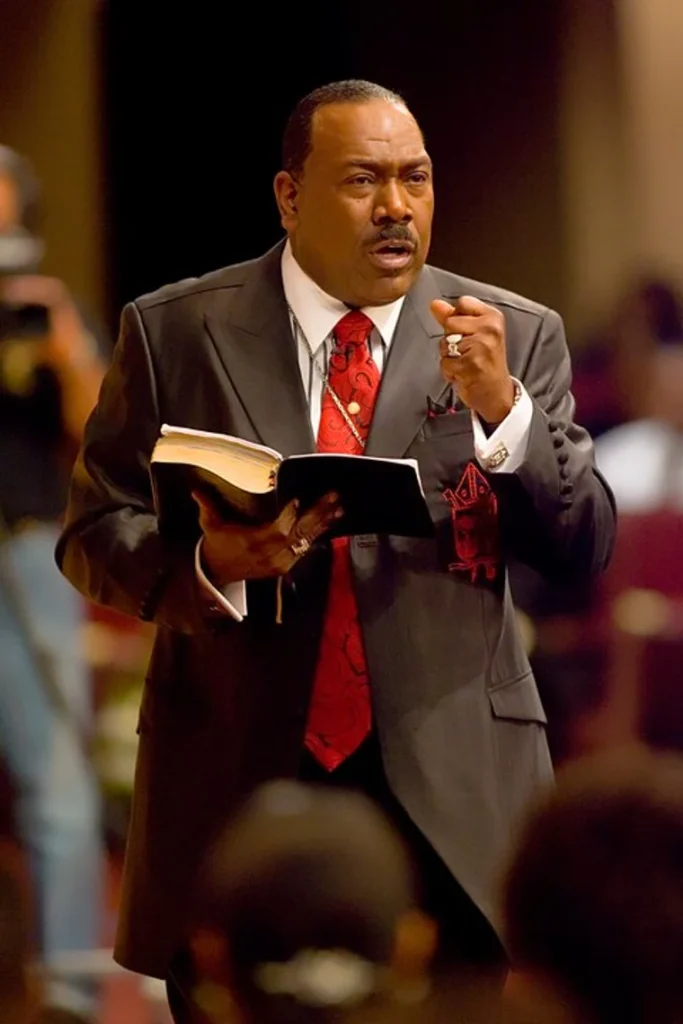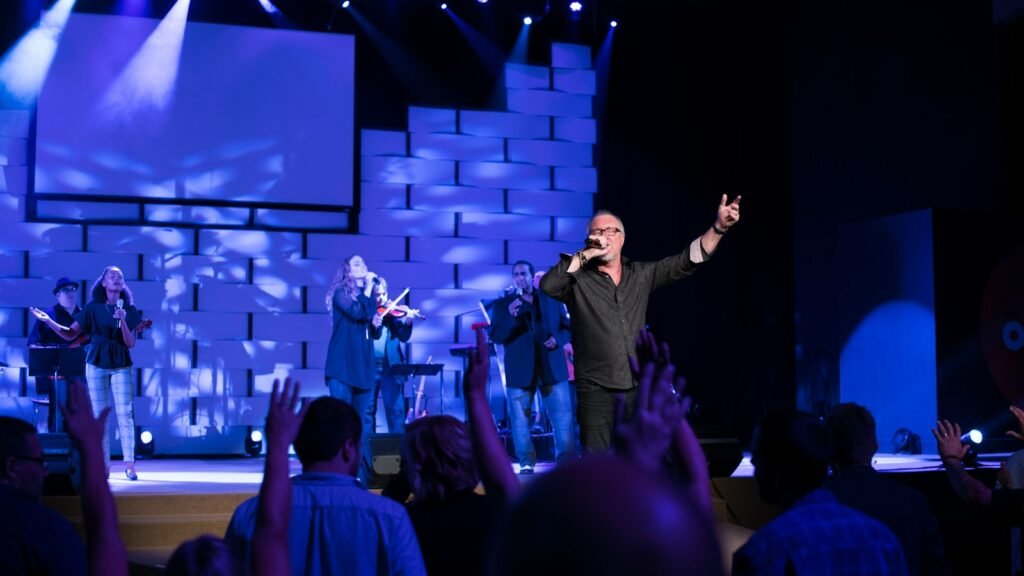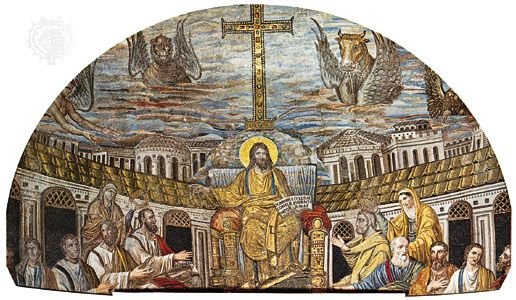In this article, we will delve into the distinctions between a reverend, a minister, and a pastor. While these titles are often used interchangeably, they actually have different meanings and responsibilities within the context of the church. By exploring their definitions, comparing their roles, and understanding their origins, we can gain a clearer understanding of the differences between a reverend, a minister, and a pastor.
Key Takeaways:
- A reverend, a minister, and a pastor are all religious leaders within the clergy.
- The term reverend is a title of respect that can be applied to any ordained religious leader.
- A minister serves in a spiritual capacity and may have various responsibilities within a religious organization.
- A pastor is a specific role within a church, responsible for leading the congregation and providing spiritual care.
- While there may be overlap between these roles, their specific duties and responsibilities can differ.
Table of Contents
Understanding The Term ‘Reverend.’
The term ‘reverend’ is commonly used to refer to a religious leader or clergy member. It is often used as a title before a person’s name, such as Reverend John Smith. The word itself derives from the Latin word “reverendus,” which means worthy of respect or reverence.
In many Christian denominations, the title of reverend is used to address ordained clergy who have been given the authority to perform religious ceremonies, provide spiritual guidance, and lead worship services. Reverends play a vital role in the religious community as they serve as spiritual leaders and guides.
As a religious leader, a reverend is responsible for conducting religious rituals, such as baptisms, weddings, and funerals. They also offer pastoral care to their congregation, providing support, counseling, and guidance to individuals seeking spiritual assistance. Reverends often deliver sermons, teach religious doctrines, and lead the congregation in prayer and worship during church services.
The title of reverend holds great significance within the clergy, signifying their authority and the respect they command as trusted spiritual leaders. It is a term of reverence bestowed upon those who have dedicated their lives to serving their faith and supporting their community in matters of spirituality and belief.
Overall, the term ‘reverend’ encompasses the multifaceted role of a religious leader, emphasizing their responsibility to guide and inspire others in their spiritual journey.
| Role of a Reverend | Responsibilities |
|---|---|
| Perform religious ceremonies | Baptisms, weddings, funerals |
| Provide spiritual guidance | Counseling, support, guidance |
| Lead worship services | Preaching, teaching, prayer, worship |
| Offer pastoral care | Supporting individuals in their spiritual journey |
Understanding The Term ‘Minister.’
The term minister is also used to describe a religious leader or clergy member. A minister is someone who serves in a spiritual capacity and is responsible for leading religious services, administering sacraments or ordinances, and providing pastoral care to the congregation.
While the title of minister can be used interchangeably with reverend in some contexts, it can also refer to someone who holds a specific role within a church or denomination.
Understanding The Term ‘Pastor.’
The term ‘pastor’ refers to a specific role within the church. A pastor is someone who has been appointed or hired to provide spiritual leadership and guidance to a congregation. They are responsible for preaching sermons, teaching religious doctrines, providing pastoral care, and overseeing the overall spiritual well-being of the church community. While pastors are often ordained ministers, some denominations may use the term pastor to refer to any qualified individual who fills the role of spiritual leader.
Detailed Comparison: Reverend Vs Minister

While the terms reverend and minister are sometimes used interchangeably, there are subtle differences between the two. A reverend is a title of respect that can be applied to any ordained religious leader, including ministers. On the other hand, the term minister specifically refers to someone who holds a position of authority within the church and is responsible for providing spiritual guidance and leading religious services. It is possible for a person to be both a reverend and a minister, but not all ministers are necessarily reverends.
Detailed Comparison: Minister Vs Pastor
While there may be some overlap between the roles of a minister and a pastor, there are distinct differences as well. A minister is a broad term that can apply to any individual who serves in a spiritual capacity and may have various responsibilities within a religious organization. Ministers can be found in various religious denominations and may fulfill roles such as youth minister, music minister, or associate minister.
On the other hand, a pastor is a specific role within a church, responsible for leading the congregation, preaching sermons, providing pastoral care, and overseeing the overall spiritual well-being of the community. Pastors are often the primary spiritual leaders of their congregations and play a vital role in the day-to-day operations and decision-making of the church.
All pastors can be considered ministers, as they serve in a spiritual capacity, but not all ministers will necessarily serve as pastors. The title of pastor signifies a higher level of leadership and responsibility within the church community.
When it comes to the hierarchy within a religious organization, ministers may serve under the guidance of pastors or other senior clergy members. While ministers may have specialized roles, pastors are typically responsible for the spiritual and administrative oversight of the entire congregation.
Detailed Comparison: Pastor Vs. Reverend
The terms pastor and reverend can have some overlap in meaning, but they also have distinct characteristics. A reverend is a title of respect that can be used to address any ordained religious leader, including pastors. The title reverend emphasizes the person’s authority and reverence in their position.
On the other hand, a pastor is a specific role within a church, responsible for leading the congregation and providing spiritual care. While all pastors can be referred to as reverends, not all reverends necessarily serve as pastors.
Is An Ordained Minister A Reverend?
Yes, an ordained minister can be referred to as a reverend. Ordination is the formal process through which a person is recognized and authorized to serve as a religious leader or clergy member. Once ordained, they are often given the title of reverend as a sign of respect and authority in their role as a spiritual leader. However, it is important to note that not all ministers or pastors may choose to use the title reverend, as it is a matter of personal preference and tradition within their specific denomination.
Reverend Vs. Minister Vs. Pastor: How Are Their Roles Different?

In the context of the church, the terms reverend, minister, and pastor may seem interchangeable, but there are distinct differences in their roles. Understanding these differences can provide clarity in addressing and acknowledging religious leaders.
The title of reverend is a mark of respect and is used to address any ordained religious leader. It signifies their authority, reverence, and position of spiritual leadership. Reverends have the responsibility of performing religious ceremonies, providing spiritual guidance, and leading worship services.
A minister is a broader term that encompasses individuals who serve in a spiritual capacity. They may have various responsibilities within a religious organization, such as preaching, teaching, providing pastoral care, and administering sacraments or ordinances.
On the other hand, a pastor holds a specific role within a church community. Pastors are appointed or hired to lead the congregation, deliver sermons, provide pastoral care, and oversee the overall spiritual well-being of the church. They are responsible for shepherding the flock and guiding them on their spiritual journey.
While all pastors can be considered ministers, not all ministers are necessarily pastors. The term minister has a wider scope, encompassing various roles within the church, such as youth minister, music minister, or associate minister. However, pastors have a more focused responsibility in leading and caring for the congregation.
| Role | Description |
|---|---|
| Reverend | Addressed to any ordained religious leader, responsible for performing religious ceremonies, providing spiritual guidance, and leading worship services. |
| Minister | A broader term referring to individuals serving in a spiritual capacity with various responsibilities, including preaching, teaching, providing pastoral care, and administering sacraments or ordinances. |
| Pastor | A specific role within a church community, responsible for leading the congregation, delivering sermons, providing pastoral care, and overseeing the overall spiritual well-being of the church. |
Understanding the distinctions between reverends, ministers, and pastors allows us to address religious leaders with the appropriate respect and acknowledge their specific roles in the church community.
Understanding The Term ‘Preacher.’

The term ‘preacher’ refers to someone who delivers religious sermons or preaches the Word of God to a congregation. Preachers are often associated with the roles of pastors or ministers, but it is important to note that these terms are not interchangeable. While a preacher can hold the title of pastor or minister, not all pastors or ministers primarily identify as preachers. Each of these roles has its own specific responsibilities and areas of focus within the church community.
Preacher Vs Pastor Vs Minister
To better understand the distinctions between preachers, pastors, and ministers, let’s explore the unique characteristics of each:
- Preacher: A preacher is a religious leader who delivers sermons or preaches the teachings of their faith to a congregation. Their primary role is to convey the message of God’s Word and provide spiritual guidance to the community.
- Pastor: A pastor is a specific role within a church, responsible for leading the congregation and providing pastoral care. They not only preach sermons but also shepherd the flock, offering support, counseling, and guidance to the members of their faith community.
- Minister: The term ‘minister’ is a broader designation for someone who serves in a spiritual capacity. While ministers may also deliver sermons and provide spiritual guidance, their role can encompass various responsibilities within a religious organization, such as youth ministry or music ministry.
While preachers, pastors, and ministers may share similar duties, it is their specific titles and areas of focus that differentiate them from one another. The terms preacher, pastor, and minister reflect the diverse roles and functions that religious leaders fulfill in the context of their faith communities.
Where Did The Names Pastor, Minister, And Reverend Come From?
The names pastor, minister, and reverend have historical origins in the context of religion. Each word carries its own unique meaning and significance.
The term pastor comes from the Latin word “pastor,” which means shepherd. This word symbolizes the role of a spiritual leader who guides and cares for their congregation, much like a shepherd tending to their flock.
The term minister comes from the Latin word “minister,” which means servant. This emphasizes the idea of serving others in a spiritual capacity. A minister is someone who dedicates themselves to providing guidance, support, and religious teachings to the community they serve.
The term reverend comes from the Latin word “reverendus,” which means worthy of respect or reverence. This word highlights the honor and respect associated with the religious title. A reverend is someone who is revered and admired for their dedication to their faith and their role as a spiritual leader.
What Do Pastors, Ministers, And Reverends Do Today?
Today, pastors, ministers, and reverends play essential roles within the church community. While their specific responsibilities can vary depending on the denomination and individual church, they all contribute to the spiritual well-being and guidance of their congregations.
Role of Pastors
Pastors are the leaders of a church community. They have the primary responsibility of leading the congregation and overseeing the overall spiritual well-being of the community. Pastors fulfill various duties, including:
- Preaching sermons during worship services to deliver religious teachings and messages
- Providing pastoral care and counseling to individuals and families within the congregation
- Offering spiritual guidance and support to those in need
- Leading prayer services and conducting religious ceremonies such as baptisms and weddings
- Collaborating with other church leaders to plan and organize church activities and events
Role of Ministers
Ministers also serve in important spiritual roles within the church. They may have similar duties to pastors, but they can also serve in specific areas of focus or roles within the church community. Some responsibilities of ministers include:
- Assisting the pastor in leading worship services and preaching sermons
- Providing pastoral care and support to specific groups within the congregation, such as the youth or elderly
- Leading or overseeing specific ministries within the church, such as music ministry or outreach programs
- Collaborating with other church leaders to plan and implement initiatives that meet the needs of the congregation
- Contributing to the overall spiritual growth of the church community
Role of Reverends
As ordained religious leaders, reverends are responsible for performing religious ceremonies, providing spiritual guidance, and leading worship services. Their main responsibilities include:
- Officiating weddings, funerals, and other religious ceremonies
- Providing pastoral care, counseling, and spiritual support to individuals and families
- Delivering sermons and leading worship services
- Administering sacraments or ordinances, such as baptisms and communion
- Guiding the congregation in matters of faith and doctrine
Pastors, ministers, and reverends play vital roles within the church community, offering spiritual guidance, leading worship services, and providing pastoral care. While pastors have the primary responsibility of leading the congregation, ministers may have additional specific roles or areas of focus, and reverends primarily serve as ordained religious leaders. Together, they contribute to the spiritual well-being and growth of their congregations.
Frequently Asked Questions
Are All Pastors Also Ministers And Reverends?
No, not all pastors are also ministers or reverends. While all pastors are spiritual leaders within their church community, the titles of minister and reverend can have different meanings and responsibilities depending on the denomination or organization. Some pastors may choose to use the title of minister or reverend, while others may prefer to solely be addressed as pastor. It is important to recognize that these titles can vary and may not always be used interchangeably.
Can A Minister Also Be A Pastor Or A Reverend?
Yes, a minister can also be a pastor or a reverend. The term minister is a broader term that refers to someone who serves in a spiritual capacity and may encompass various roles within a religious organization. A minister may choose to specialize in pastoral duties and be addressed as pastor, or they may be ordained and given the title of reverend as a sign of their authority and respect in their role as a spiritual leader. Thus, a minister can hold the titles of pastor or reverend depending on their specific role and denominational practices.
What Are The Qualifications Or Requirements To Become A Pastor, Minister, Or Reverend?
The qualifications or requirements to become a pastor, minister, or reverend can vary depending on the specific denomination or religious organization. In most cases, these positions require a formal education in theology or religious studies, which can be obtained through a seminary or divinity school. Additionally, individuals seeking to become pastors, ministers, or reverends often undergo a period of training, mentorship, and discernment within their respective religious community. Ordination, the formal recognition of one’s authority and status as a religious leader, may also be required. It is recommended to consult with the specific denomination or organization to fully understand their requirements and guidelines for these roles.
How Are Pastors, Ministers, And Reverends Addressed Or Referred To Formally?
Pastors, ministers, and reverends are formally addressed or referred to with the title of their choosing followed by their name. For example, a pastor may be addressed as “Pastor John” or “Reverend Smith.” The specific title used can vary depending on the preferences and traditions within the religious community. It is always respectful to use the appropriate title when addressing or referring to a pastor, minister, or reverend.
Are There Any Gender-Specific Titles Or Roles For Pastors, Ministers, Or Reverends?
Traditionally, there have been gender-specific titles and roles within the clergy. For example, the title of pastor or reverend has historically been associated with male clergy members, while the term minister has been used for female clergy members. However, in recent years, many religious organizations have embraced gender equality and have opened up leadership roles to individuals of all genders. Today, there are pastors, ministers, and reverends of various genders, and these titles are no longer solely gender-specific. It is important to recognize and support inclusivity within the clergy and respect the chosen titles and roles of individuals within the religious community.

Rockin’ the faith, one verse at a time!
Growing up, the Bible’s stories deeply impacted me. Now, with over 15 years of preaching experience, I blend timeless teachings with modern technology, making them relevant for today’s world.
Bible Hub Verse is my platform to share historical insights and thought-provoking articles, exploring both familiar and uncommon Christian topics. My passion is building a welcoming online space for everyone to learn, grow in their faith, and discover the Bible’s enduring message.
Join the journey!
God bless you.






